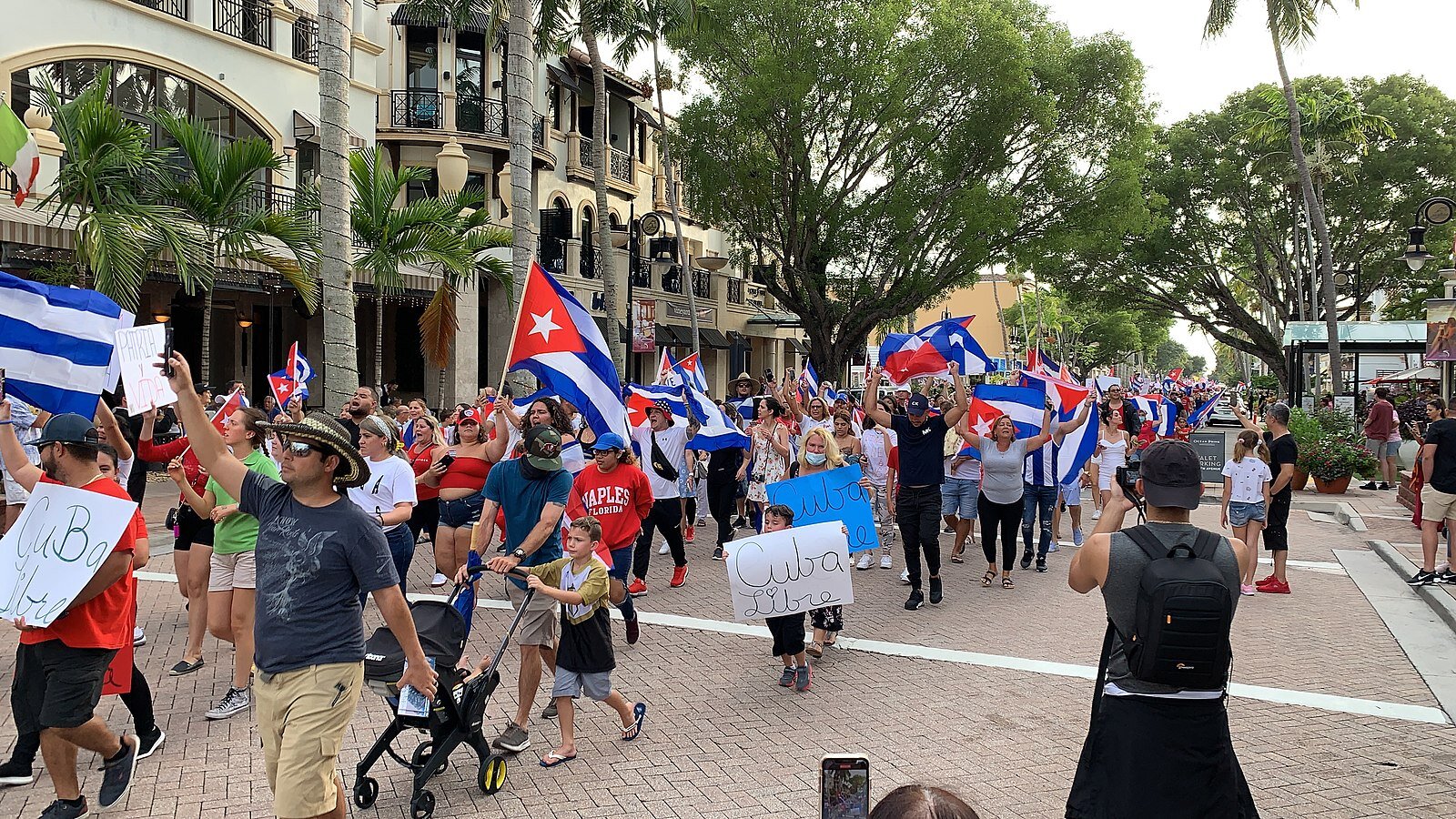
Every year for over fifty years, Fidel Castro told the Cuban people that an invasion was imminent. Like clockwork, the Cuban people were scrambled into the streets seeking shelter from what they had been programmed to believe was a threat to their way of life. The Cuban army, posing as the enemy, would march through the Cuban streets pretending to be taking over the country. The children would be rushed from their beds and transported through tunnels to underground shelters. The idea was to instill terror and hate towards the United States of America, an enemy always at the gates.
Castro’s fear campaigns wouldn’t fully work, and ironically, it seemed to spur more dissent. Year after year, thousands escaped to the United States leaving the land of make-believe behind.
Today, the Cuban people have had enough and are spilling out into the streets insisting on better governance. The country has been subjected to grueling economic sanctions for years, but the COVID-19 pandemic has brought Cuba to a breaking point. The nation is even facing its worse food shortage since the 1990s, and its hospitals and pharmacies have run out of medicines as basic as penicillin and aspirin. Thousands are marching in Havana and Santiago chanting slogans like “Down with the dictatorship” and “We want liberty.”
Castro and his regime always feared what is happening now. The current president and head of the Communist Party is Miguel Díaz-Canel, the first person outside of the Castro family to hold the post. Still, Díaz-Canel is an ardent follower of Castro and is deploying the same tactics of fear and suppression: blaming the United States and labeling protestors as traitors. “We are calling on the revolutionaries in the country, all the communists, to hit the streets wherever there is an effort to produce these provocations,” Diaz-Canel said in broadcast remarks.
We are deeply concerned by “calls to combat” in #Cuba. We stand by the Cuban people’s right for peaceful assembly. We call for calm and condemn any violence.
— Julie Chung (@WHAAsstSecty) July 11, 2021
Thankfully, Cuban-American politicians, world leaders, and human rights groups have swiftly condemned these combative statements. Julie Chung, the top US diplomat for Latin America wrote on Twitter that Washington is “deeply concerned by ‘calls to combat’ in Cuba” and supported the Cuban people’s “right for peaceful assembly.” Hopefully, the international community will continue to apply this pressure campaign to prevent the Communist Party from deploying more draconian police tactics.
For many decades, Cubans have seen institutional change as inevitable, but never knowing when it will arrive. Now, seems to be the answer. Time is on the people’s side, and the longer they march, the more improbable it will be for the Communist Party to put the cork back in the bottle. The world is watching the cries of pain, of need and the fever is ever-growing.
No longer will the fear-mongering tactics from the government work. The people welcome an invasion of freedom and social justice. The facsimile has become a reality for the Cuban politicians in charge of the country and this time reality comes with faces and voices. This time the people are not hiding in shelters, they are out in the open fighting for their rights.






